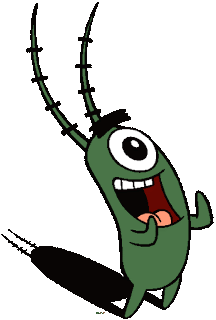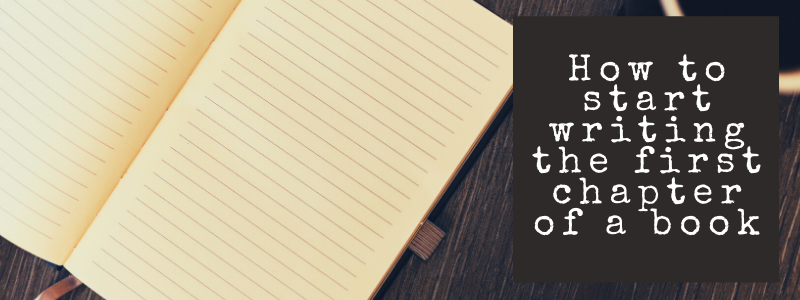Three ways to write effective villains
Everyone
loves a bad guy, right? But what makes convincing, engaging villains that
readers will love to despise? As with a lot of things the answer is easy to
identify but difficult to achieve. In this post I’ll examine three core
characteristics of what I believe makes a great villain and suggest ways to go
about achieving this in your own work.
Number one -
Villains are ruthless and unfair.
 I spend a
lot of my time working with teenagers. This has taught me a number of things
from don’t ask questions you don’t really want the answer to
(“I’m sorry Jimmy, is this lesson boring you?” “Yes, sir, it is.”) to teenagers are brutally honest (“You’re alright sir, but
we prefer Mrs X” - ouch). Perhaps the most important lesson I’ve learned
concerns the importance of fairness. A sense of
fairness cuts through each of us to our very core.
I spend a
lot of my time working with teenagers. This has taught me a number of things
from don’t ask questions you don’t really want the answer to
(“I’m sorry Jimmy, is this lesson boring you?” “Yes, sir, it is.”) to teenagers are brutally honest (“You’re alright sir, but
we prefer Mrs X” - ouch). Perhaps the most important lesson I’ve learned
concerns the importance of fairness. A sense of
fairness cuts through each of us to our very core.
Fairness is
especially important for children and teenagers as they have so little control
over their own lives. Children don’t generally get to choose where they live.
They don’t usually get to choose what time they wake up or go to bed. They
don’t often get to choose what food to buy at the supermarkets, or what meals
are made on each day. School is largely compulsory and run according to a rigid
timetable. Seats are allocated. Breaks defined by bells and buzzers. The thing
that gives most people the freedom to express themselves, money, is in short
supply for children.
Given this
relative powerlessness, children are acutely sensitive to what is fair and
unfair - largely as they have so little control over it. I don’t think this
ever really leaves us. John Donne famously wrote that ‘No man is an island’.
What he was getting at this that each of us is dependent on others.
We all
experience points in our lives where we are vulnerable and powerless and at the
mercy of another person’s sense of fair play. This, I believe, is the sweet
spot for villainy.
A compelling
villain is one who pokes the reader in their sense of injustice. Make your
villain do this and you will push the reader from mere distaste to proper
outrage. And what do we know about outrage? It’s fascinating. Outrage fuels
news stories, celeb magazines and twitterstorms. Outrage sucks us in and makes
us incapable of looking away. A good villain, as everyone knows, is fascinating.
Let’s
examine this in a little more detail. How might we go about achieving our
outrageous, fascinating villain?
I would
argue that the basic principle is that villains should seize the chance to
inflict harm on others when ordinary people could be counted on not to. The
vast majority of people, when faced with the weakness of others, respond with
compassion, or at the very least, indifference. Villains don’t, they respond
with ruthlessness.
The
reasoning for this seems almost counter-intuitive. Villains exists because most
people are generally nice. In any community most people can be counted on to
generally get along with each other. This is nicely illustrated by the fact
that most developed countries have roughly one police officer per 450 people -
at any one time 99.8% of people can be relied upon not to be an utter
destructive bastard. That’s why they stand out; villains appear bad because
most people are good.
Our villain
represents the 0.2%. If you think this is a dodgy argument, look up the stats.
Human beings, much as most people don’t believe it, are generally lovely.
Compare the murder rates of different mammals. Go ahead, Google is just one tab
away...seriously, give it a go... done it? Scary, eh? Who would have thought
meerkats were such murderous bastards?
What does
this mean in practise? It means that when a character is placed in a position
of vulnerability, the villain does what the 99.8% would not do. In the Harry
Potter series, Voldemort is a villain not so much because he wants to rule the
world, lots of people want to do that. Voldemort is a villain because when he
feels threatened by a helpless baby, he tries to murder that baby without
hesitation. Bellatrix is a villain because she doesn’t just kill and torture
people, but she taunts them when they’re at their most vulnerable - “I killed
Sirius Black!”
Similarly,
in Dune, we learn that Vladimir Harkonnen is a villain by how comfortable he is
torturing Dr Yeah’s wife, Wanna, for a year simply to break his imperial
conditioning. He identifies Yeuh's sole weak point, he exploits it to cause
Yeuh pain and then he keeps on pressing that sore point until Yeuh breaks.
Ruthless.
The vast
majority of people look after strangers who are important to those we know.
They don’t exploit our emotional connection. Villains do. Moreover, a great
villain doesn’t do this reluctantly, they exult in it. They take pride in it.
This alien response to vulnerability makes them frightening, unpredictable
people. They don’t act in the way we expect and this triggers a strong negative
emotional response towards us. We. Don’t. Like. Them.
Number two -
Villains aren’t nice people (at least, not to everyone)
This really
surprised me when I started reading around for this post. A lot of advice out
there seems slanted towards encouraging writing to make the villain relatable.
We should, it seems, show what drove our antagonists to their current, evil
state. They should be ordinary, relatable folks made bad. I don’t agree. I
think they should be really nasty bastards.
Whilst I
stand by my assertion above, that most people are generally nice, there are a
lot of people in the world. And if there are a lot of people in the world, then
when even a small proportion are bad, that means that there are a lot of bad
people too. History is littered with cruelty, from the Beast of Belsen to the
science teacher who fed a live puppy to a snapping alligator turtle, and not
all of it can be put down to a traumatic childhood experience. Some folks are just
a bit wrong. To my mind, these are the people who make the best villains.
Villains are
cruel. They are vindictive and nasty. They take pleasure in the suffering of
others and their own aggrandisement at the expense of others. We shouldn’t shy
away from this. We shouldn’t dilute it.
I think the
risk is confusing a relatable villain with an anti-hero. Or even worse, a plain
old hero. Jaime Lannister is a good example. At the start of the series, books,
TV, take your pick, Jaime is a genuine villain. A bad guy. He pushes a small
child out of a window, as far as he knew, to his death. Compare and contrast
this with the Jaime Lannister we get later on - caring, compassionate,
principles. Yes, he is the Kingslayer, but that action is justified - he was
defying the Mad King! This is a personality transplant, not character
development. It does not make for a good villain.
A good term
might be Shellshtrop Syndrome. In the Netflix series The Good Place, we are
presented with Eleanor Shellstrop as being a bad person in the good place. But this isn’t true. At best she is a rude
person. An impolite person. She isn’t bad. We are shown
her defying social norms, but she doesn’t go out of her way to harm people. She
isn’t ruthless. This is necessary for the show, because, as the protagonist (I
appreciate she isn’t a villain), we ought to like her. We can still relate to
her because when the chips are down, when push comes to shove, she is
fundamentally a good person. This is the case with later Ice and Fire Jaime
Lannister. To make them relatable, these characters have to be
fundamentally good. Villains should not be good.
I’m not
suggesting villains don’t get a past or a motivation. I’m suggesting that their
motivation should be one that we can’t relate to. They should remain a part of
the 0.2%. We should find them alien and wrong.
Three - Villains
typically believe they are trying to do the right thing.
I think this
is the point that a lot of advice in this area is really trying to make. Just
because a character is a villain doesn’t mean they aren’t, in themselves,
trying to do the right thing by their own sense of morality and logic. However,
a convincing villain shouldn’t abide by the same logic as everyone else. There
ought to be a twisted, malformed image of our own moral sensibilities. What do
I mean by that?
Villains
should have a rationale for their actions, but not one that most others would
agree with. A very common example of this is a ‘greater good’ justification.
This is rooted in the philosophical idea of utilitarianism - in any given
situation, the right thing to do is that which maximises overall happiness and
minimises overall suffering. Now, one of the first things new moral philosophy
students learn is that the utilitarian approach can ultimately be used to justify
all sorts of terrible actions if the stakes are high enough. Would you murder
an innocent baby? Of course not...but what if, through some peculiar twist of
fate, the lives of a million innocent people depended on the child being
killed? Well, surely then there is an obligation to kill? Right?
So it is
that Thanos justifies the ‘snap’. So it is that a thousand other villains
justify starting wars, bombing innocents and so forth. However, the truly
villainous will take this kind of justification and twist it.
I’m going to
leave this last point here as, frankly, I could, and probably will, write
another two thousand words on this at another point.
 I want to
finish with a case study of a superlative villain who exemplifies all the
qualities I’ve argued for: Nurse Ratched from One Flew Over the Cuckoo’s Nest.
She is an intensely dislikable and effective villain. Why? She is in a position
of power over a group of vulnerable psychiatric patients. She exploits that
power ruthlessly and repeatedly. She doesn’t do so reluctantly or as a last
resort, she embraces it. And she absolutely believes she is entitled to do it
for the purposes of running an orderly and calm ward, no matter what this
entails for the patients themselves. Nurse Ratched - I salute you.
I want to
finish with a case study of a superlative villain who exemplifies all the
qualities I’ve argued for: Nurse Ratched from One Flew Over the Cuckoo’s Nest.
She is an intensely dislikable and effective villain. Why? She is in a position
of power over a group of vulnerable psychiatric patients. She exploits that
power ruthlessly and repeatedly. She doesn’t do so reluctantly or as a last
resort, she embraces it. And she absolutely believes she is entitled to do it
for the purposes of running an orderly and calm ward, no matter what this
entails for the patients themselves. Nurse Ratched - I salute you.
So, in
summary, make your villains unfair, make them ruthless, make them nasty people
and make them full of a sense of their own rightness. Happy writing.
GJ


Comments
Post a Comment